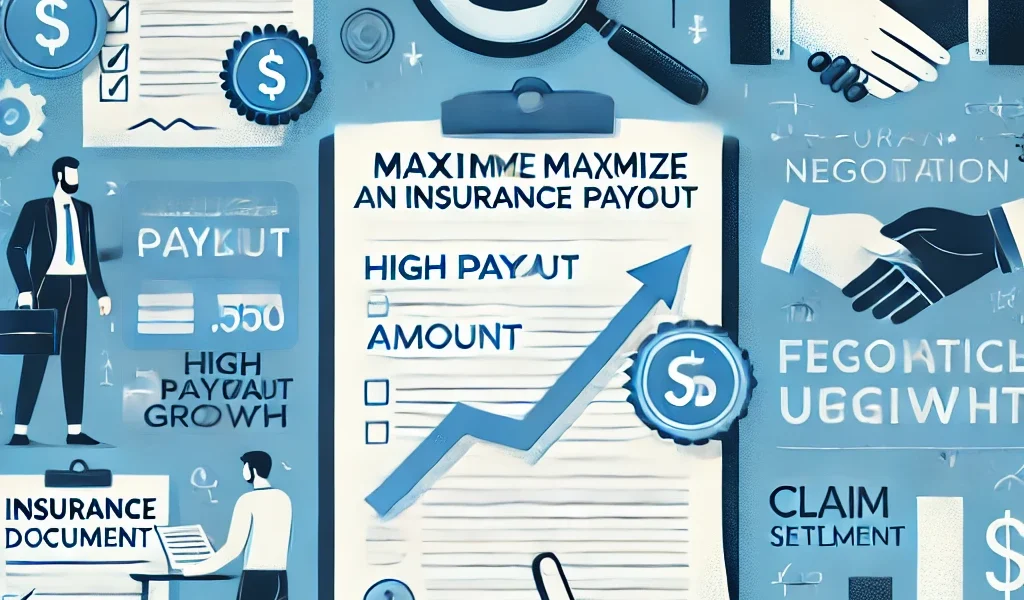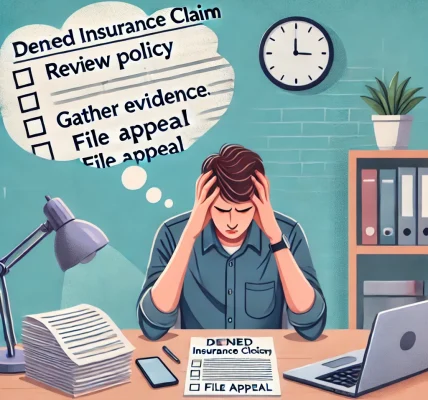Filing an insurance claim can be a complex process, but maximizing your payout requires knowledge, strategy, and persistence. Whether you’re dealing with home, auto, health, or business insurance claims, understanding the right steps can help you receive the full compensation you deserve. In this guide, we will cover essential tips and best practices to ensure you get the most out of your insurance claim without any legal complications.
1. Understand Your Insurance Policy
1.1 Review Your Policy Thoroughly
- Carefully read the terms and conditions of your insurance policy before filing a claim.
- Understand what is covered, what is excluded, and any limitations on the payout amount.
- Check the deductibles and co-pays that might reduce your final payout.
1.2 Clarify Any Doubts with Your Insurer
- Contact your insurance company’s customer service or agent for clarifications.
- Ask about claim procedures, required documentation, and expected timelines.
2. Act Quickly & Report the Claim Promptly
2.1 Report the Claim as Soon as Possible
- Most insurance policies have time limits for reporting claims.
- Delaying your claim could result in complications, reductions, or even denial.
2.2 Document Every Interaction
- Keep records of conversations with your insurer, including the date, time, and details of discussions.
- Save emails and written correspondence for future reference.
3. Gather Strong Evidence to Support Your Claim
3.1 Take Photos & Videos
- Document the damage or loss with clear, high-resolution photos and videos.
- Capture multiple angles and close-ups to provide a detailed view.
3.2 Collect Important Documents
- Obtain repair estimates, police reports (if applicable), medical records, and any other supporting documents.
- Keep copies of receipts for expenses related to the claim, such as temporary accommodations or medical treatments.
3.3 Get Independent Assessments
- For property damage, consider hiring an independent adjuster or contractor to assess the damage.
- Compare their estimate with the insurer’s evaluation to ensure you receive a fair payout.
4. Avoid Common Mistakes That Can Reduce Your Payout
4.1 Do Not Exaggerate the Claim
- Provide accurate and honest information to avoid potential claim denial or legal issues.
4.2 Do Not Accept the First Settlement Offer Blindly
- Insurance companies often provide an initial low offer.
- Review the offer carefully and negotiate if necessary to receive a fair amount.
4.3 Do Not Sign Any Documents Without Understanding
- Carefully review all agreements before signing.
- Consult a legal expert if needed to ensure you’re not waiving any rights.
5. Negotiate Smartly for a Higher Payout
5.1 Be Prepared with Facts & Evidence
- Use all gathered evidence, assessments, and reports to support your claim.
5.2 Stay Persistent & Professional
- If the insurer tries to minimize your payout, remain firm and assertive.
- Escalate the issue to a higher authority within the insurance company if needed.
5.3 Consider Hiring a Public Adjuster
- Public adjusters work on behalf of policyholders and can negotiate better settlements.
- They typically charge a percentage of the final payout but can help maximize compensation.
6. Utilize Additional Coverage Options
6.1 Check for Additional Riders or Benefits
- Some policies have add-ons that provide extra coverage for specific losses.
- Review your policy for hidden benefits such as alternative living expenses or rental car reimbursement.
6.2 Claim for Temporary Expenses
- If your home is unlivable due to damage, claim for hotel stays, food expenses, and other necessary costs.
6.3 Leverage Legal Assistance If Required
- If the insurance company is unfairly reducing your claim, consult an attorney specializing in insurance claims.
- Legal action should be a last resort but can be effective in securing a fair payout.
7. Frequently Asked Questions (FAQs)
Q1: How long does it take to process an insurance claim?
Processing times vary, but most claims take anywhere from a few days to several weeks. Complex cases can take longer.
Q2: Can I negotiate my insurance claim settlement?
Yes, you have the right to negotiate if you believe the initial offer is too low. Provide evidence to support your case.
Q3: Will my insurance premiums increase if I file a claim?
It depends on the type of claim and your insurer. Frequent claims or at-fault incidents can lead to higher premiums.
Q4: What if my claim is denied?
You can appeal the denial by providing additional evidence, requesting a reevaluation, or seeking legal assistance.
Final Thoughts
Maximizing your insurance claim payout requires a proactive approach, strong documentation, and persistence. By following these steps, you can ensure you receive the compensation you rightfully deserve while avoiding legal pitfalls. If you’re ever unsure, consult with an insurance expert or legal advisor to guide you through the process.




